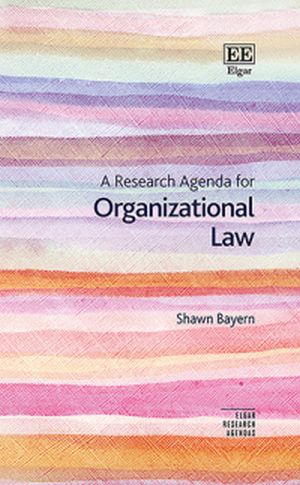
Elgar Research Agendas outline the future of research in a given area. Leading scholars are given the space to explore their subject in provocative ways, and map out the potential directions of travel. They are relevant but also visionary.
Taking stock of the quiet revolution that has taken place in the field of organizational law over the last few decades, this erudite Research Agenda presents a critical overview of the current state of organizational law and explores the increasingly flexible structures and capabilities of modern organizations.
Explaining and evaluating new possibilities in modern organizational law, the book demonstrates that legal organizations are much more generative than widely recognized, with the capacity to enable new configurations that combine several legal transactional techniques. Chapters consider the implications of this flexibility for monitoring, regulation, and reform, examine the effects of modern transactional creativity on the rest of the legal system, suggest how organizational statutes might be harmonized, introduce non-traditional uses of modern organizations like LLCs, and propose novel ways to regulate organizations. The book ultimately highlights that the formlessness and adaptability of modern legal organizations is the foundation for a significant body of future research on the evolving role of legal entities.
This path-breaking Research Agenda will prove invaluable to academics and students of company law, partnership law, and agency law, as well as transactional lawyers and analysts of organizations in other fields. Its extensive critical analysis will benefit all those who use, study, and regulate modern legal organizations.